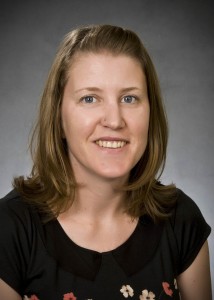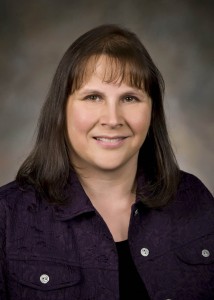Women faculty at Wright State University who teach in science, technology, engineering, mathematics, medicine and social and behavioral sciences (STEMMS) are invited to join a faculty mentoring program that has grown exponentially in the past year.
In spring 2014, five female STEMMS faculty representing social and behavioral science (Amelia Hubbard, sociology and anthropology, and Shreya Bhandari, social work), medicine (Nikki Rogers, community health), engineering (Subhashini Ganapathy) and science and math (Paula Bubulya, biology) received funding from the Launching Equity Across the Dayton Entrepreneurial Region (LEADER) Consortium at Wright State to develop a structured peer-mentoring program to address the professional development needs of female faculty in STEMMS disciplines.
The LEADER Program is a funded effort to promote the recruitment, retention and advancement of female faculty in STEM at Wright State and three partner institutions in Dayton.
Research indicates that women in STEMMS fields sometimes leave academic careers as a result of the sense of professional isolation and lack of career mentoring.
“The reality is that faculty members at a top-tier institution like Wright State have very complex and demanding roles. Faculty members must excel not only at teaching but also in their scholarship while providing service to their departments, their colleges, the university and their profession,” said Stephanie Goodwin, director for faculty development and leadership. “Research shows that faculty don’t just survive but thrive when they have broad mentoring networks that can address these complex roles.”
The initiative grew out of a radical mentoring philosophy outlined in the book “Every Other Thursday: Stories and Strategies from Successful Women Scientists” by Ellen Daniell, who came to campus last spring to deliver a workshop on the power of group mentoring.
The idea built on a now popular model of “multiple mentors” as opposed to traditional mentor-mentee relationships. In addition to individual group meetings, the eight existing groups meet at least once per term to reconnect, recruit new members and build on the existing structure.
“The first term was essentially an experiment to see if this model would work well for us. In the end, we’ve seen some tremendous successes,” said Hubbard, assistant professor of anthropology.
She hopes that the women will feel “a greater sense of belonging and a community in which issues can be shared, professional connections can be made and ideas can be strengthened.”
The STEMMS mentoring circles program has been active for only two terms but has grown steadily from 25 faculty participants to 41 individuals at the end of fall 2014.
Women participate in mentoring circles of around five members, meeting regularly to provide timely mentoring support. Participants report a number of important benefits to the time they invest in the groups, including increased productivity, positive feelings about their professional roles and increased networking across colleges.
Through regular assessment, Hubbard and her colleagues were surprised to find that in addition to an improved sense of belonging to the university community, women “were benefiting significantly from the opportunity to network among the larger group (of 41 women). Some were even doing research projects together within months of meeting. We didn’t expect these results this soon in the process.”
Each mentoring group meets at different times and locations depending on group preferences. Groups may encourage each other’s project ideas, email each other about teaching questions or give members unique perspective on how to handle difficult issues as they arise.
The five original co-principal investigators (PIs) on this initiative now act as an “advisory council” that helps group. Members remain accountable while also working to develop a process to bring larger issues facing women across campus, not just in STEMMS, to the administration.
Beginning in fall 2015, a new advisory council, which has been working with the five PIs, will take over the direction of the group: Shalini Forbis (Boonshoft School of Medicine), Caroline Cao (College of Engineering and Computer Science), Jackie Bergdahl (College of Liberal Arts) and Mary Fendley (College of Engineering and Computer Science).
The STEMMS mentoring program is now working with Goodwin as well as Steve Berberich, associate provost, and Kimberly Barrett, vice president of multicultural affairs and community engagement, to expand this peer-mentoring concept to other faculty groups across campus.
Faculty are encouraged to contact Amelia Hubbard at amelia.hubbard@wright.edu or 270 Millet Hall for more information about the STEMMS mentoring circles program.
Questions about the Faculty Mentoring Grants program and suggestions for other faculty professional development efforts should be directed to Stephanie Goodwin at (937) 775-4517 or at 280F University Hall.



 Wright State, Premier Health hosting surgical symposium for high school and undergraduate students
Wright State, Premier Health hosting surgical symposium for high school and undergraduate students  Wright State joins nation in celebrating first-generation students
Wright State joins nation in celebrating first-generation students  Education grant connects Wright State students with Dayton Regional STEM School for instructional education partnership
Education grant connects Wright State students with Dayton Regional STEM School for instructional education partnership  Wright State recognized among top public universities in latest U.S. News Best Colleges Rankings
Wright State recognized among top public universities in latest U.S. News Best Colleges Rankings  Nearly 1,000 students and alumni turn out for Wright State’s Fall Career and Internship Fair
Nearly 1,000 students and alumni turn out for Wright State’s Fall Career and Internship Fair 